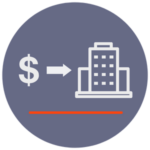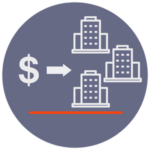Best share trading platforms and apps
Whether you want to invest in NZ or international shares, funds, or something else, these are the tools for you.

Updated: 27 October 2025
In October 2025, Superhero announced it had closed operations in New Zealand. References to Superhero have been removed from this comparison guide.
The breakdown
- Each share trading platform available in NZ has its own range of available markets and different fees, so choose carefully.
- Because different share trading platforms have different fee structures, how you invest will affect the fees you pay with each.
- Some platforms have promotional offers such as free shares to entice new customers, but make sure you review all the features of any service you’re considering.
Author: Kevin McHugh, Head of Publishing at Banked.
Compare share trading platforms
| Platform | Available markets | Investments types | Transaction fee | Promotions | Learn more | |
|---|---|---|---|---|---|---|
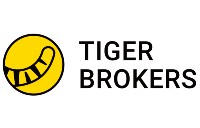 Tiger Brokers
Tiger Brokers
|
|
|
Zero transaction fees 4 times for US & AU shares every month.
Varies with market, starting from USD $2. |
|
Tiger Brokers review | |
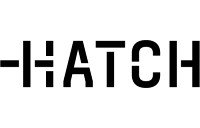 Hatch
Hatch
|
|
|
$3 USD | Sign up with our link and get a $20 NZD top-up when you deposit $100 NZD. | Hatch review | |
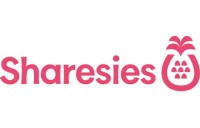 Sharesies
Sharesies
|
|
|
1.9%, capped at: - $5 USD for US shares - $25 NZD for NZ shares - $15 AUD for AU shares. |
None currently | Sharesies review | |
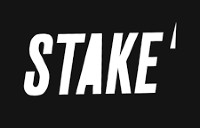 Stake
Stake
|
|
|
US$3 (for trades up to US$30,000) | Free Nike, Dropbox or GoPro stock | Stake review | |
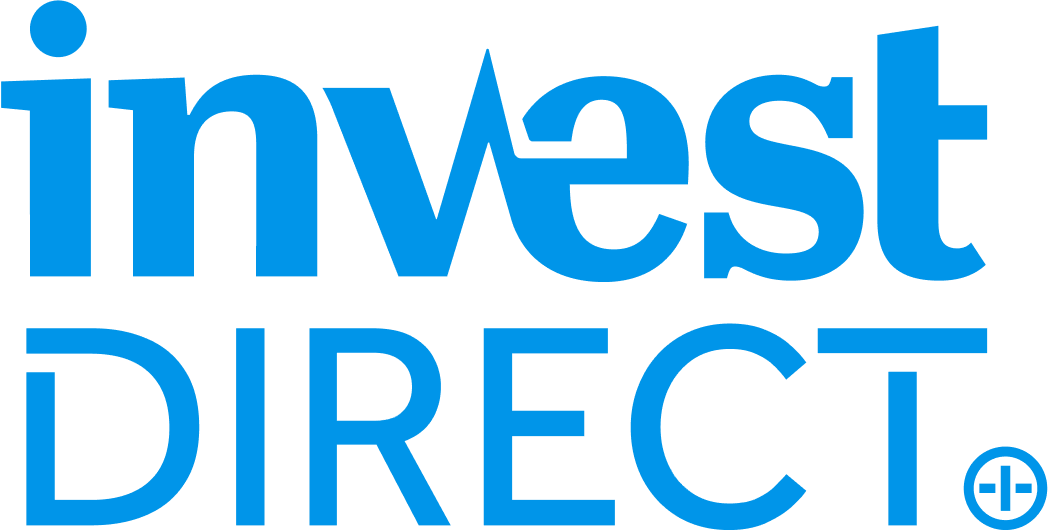 Invest Direct
Invest Direct
|
|
|
Varies with market, starting from $29.90 | None currently | ||
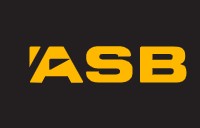 ASB Securities
ASB Securities
|
|
|
From $15 | None currently | ||
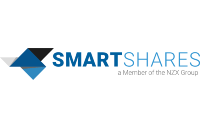 Smartshares
Smartshares
|
|
|
An establishment fee of $30 is charged on first investment into the scheme. | None currently | ||
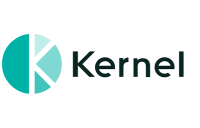 Kernel Wealth
Kernel Wealth
|
|
|
$0 | None currently |
What is a share trading platform?
A share trading platform or app is a tool that lets you invest in shares, funds and similar investment products.
As well as buying and selling shares and other investment products, these platforms let you manage your portfolio and monitor the performance of shares you’re interested in.
Most NZ share trading platforms operate mainly online and are accessed through the platform’s website or mobile app, but some do have client experience teams available over the phone.
Which is the best share trading platform or app?
The best share trading platform for you will depend on what you want to invest in and how you will invest.
Not all platforms in New Zealand have access to the same investment products and markets. For example, several share trading platforms in NZ (including Hatch, Sharesies and Stake) will give you access to US stock exchanges, but few will let you buy shares on UK exchanges.
Each platform also charges different fees for different things. Some platforms will charge you a lower brokerage fee when you buy a stock, but will charge more when converting your money between currencies. Others will make funds from selling stock available straight away, while others will charge you a fee to access it before a certain time has passed.
These differences in fees mean you will get a better deal investing through one platform than another depending on how you want to invest.
How to pick the best share trading platform for you
We break down the questions you need to ask yourself in order to get the best and cheapest share trading service for you.
What do you want to invest in?
Knowing what investment products and/or exchanges you want access to will help you narrow down your choices.
Maybe you want to buy shares in a particular company, for example, A2 Milk. In this case you will need a platform that lets you buy shares in companies listed on the New Zealand Exchange (NZX). These include Sharesies, ASB Securities and Invest Direct.
Perhaps you want to invest in a number of innovative US tech companies in one go. Then you could be interested in an exchange-traded fund (ETF) that spreads your investment across a number of companies. Platforms that provide you with access to US-based ETFs include Hatch, Stake and Sharesies.
Not all platforms offer the same feature set, either. If you want to participate in stock lending or you want an auto-invest option, make sure you pick a service that offers that functionality.
What’s your investment approach?
Different share trading platforms have different features and fees which can make each of them better for different types of investors.
For example, if you plan on making trades on a daily or weekly basis from funds you already have in your wallet, a platform with a very low brokerage fee is likely best for you.
However, you might want to invest part of your salary each month into a foreign market — one of the US exchanges, for example. In this case, you may be better off choosing a share trading platform with a low currency conversion fee.
The platform with the best deal is one that is suited to your needs and trading style so consider how you plan to invest.
Customer service options — online only, or phone too?
In recent years, online share trading platforms like Sharesies, Hatch and Stake have exploded in popularity. They offer low fees and simplify share trading, especially for those who don’t have a lot of trading experience, but they aren’t for everyone.
With these platforms, you buy shares and manage your portfolio through the website or mobile app. Picking up the phone and trading shares with a broker is not an option.
If that personal touch when investing is an important feature for you, the older more established brokers like ASB Securities and Invest Direct (formerly known as Direct Broking) might be better choices for you.
Types of investments available
There are a wealth of investment products available from NZ trading platforms. Here is a simple explanation of the most popular options, including the pros and cons of each.
Shares
Buying a share, or stock, is a way to buy a small piece of a company. If the company performs well financially, the share price will increase and it can be sold for a profit. But if the company performs badly, the share price will drop.
Note: while ‘stocks’ and ‘shares’ are often used interchangeably, shares are more accurately units of stock.
Some companies pay out dividends to shareholders. This is basically a way for the company to directly distribute profits to shareholders. The amount a shareholder gets in a dividend depends on how much they have invested and how much the company decides to pay out.
Examples of popular stocks include Tesla (ticker symbol TSLA), Air New Zealand (AIR), and Amazon (AMZN).
NZ share trading platforms that let you invest in shares include:
- Hatch
- Tiger Brokers
- Sharesies
- Stake
- ASB Securities
- Invest Direct
Pros and cons of shares
Pros
- You can invest directly into a company
- Investing in shares is now fairly easy to do through online share trading platforms
- Dividends provide the possibility of passive income
- Thousands of publicly traded companies around the world means there is huge choice
Cons
- Generally riskier than a fund as performance depends on one company
- While the process of buying shares can be simple, finding that platform that gives you the best deal on fees can be trickier
- Researching the company you want to invest in can be time consuming
Exchange-traded funds (ETFs)
An ETF is a single fund made up of a number of securities, like shares or bonds.
An ETF can be set up to match the performance of a market index, such as the Standard & Poors 500 (S&P 500).
It could also be created to represent a particular area or theme. For example, the popular ARKK ETF is made up of innovative tech shares, such as Tesla and Coinbase.
You don’t actually own the underlying investment with an ETF (Tesla and Coinbase, in the example above), a fund manager does. However, if an ETF you have invested in contains shares that pay dividends, you can still receive those dividends.
Most ETFs are passive, which means they are not actively managed in an attempt to beat a particular area of the market. This means they have lower fees than actively managed funds.
Examples of popular ETFs include the S&P/NZX 50 ETF (from fund manager Smartshares), the S&P 500 ETF (from Vanguard) and the ARK Disruptive Innovation ETF (from ARK Invest).
NZ share trading platforms that let you invest in ETFs
- Sharesies
- Hatch
- Stake
- ASB Securities
- Invest Direct
- Smartshares
- InvestNow
> Learn more about investing in ETFs and index funds in our guide.
Pros and cons of ETFs
Pros
- Diversification. As you’re effectively investing in a range of securities, there is less risk involved
- Because most are passive, they have lower fees than managed funds.
- There is a huge variety of ETFs so there is no shortage of options.
- You may still get dividend payments.
- They can be traded as easily as shares.
Cons
- While fees are quite low, they do still come with a fee that shares don’t.
- ETFs can be made up of lots of securities, and the investment in each weighted differently, it won’t always be clear what affects your investment.
Managed funds
Managed funds pool money from many investors to create a single fund.
Managed funds are similar to ETFs in that they are invested in a number of assets. They can have a particular investment goal relative to risk — common categories are conservative, balanced, and growth.
A managed fund may also be created to align with a specific financial area, such as property, or consist of investments within a particular country.
Managed funds are more likely to be actively managed than passively managed. This means they are more likely to have higher fees than some other fund types.
As they operate like KiwiSaver funds, many KiwiSaver providers also offer managed funds.
NZ platforms that let you invest in managed funds include:
- Simplicity
- Fisher Funds
- Sharesies
- AMP
- Fisher Funds
- Booster
- Westpac
- Sugar Wallet
Pros and cons of managed funds
Pros
- Managed funds are naturally diversified as they are invested across a number of assets
- There are many fund providers in NZ so there’s likely to be a managed fund that suits your needs
- Managed funds can also offer dividends
Cons
- As many of these funds are actively managed, they generally have higher fees than passive fund types
- Investing in a managed fund is generally less accessible and so they’re not ideal for short term investments
- Many managed funds can require a minimum investment
Contracts for difference (CFD)
CFDs are some of the most complicated and risky financial products and are only suitable for experienced traders. Most investors lose money investing with CFDs.
A CFD is a contract between you and the seller in which you are taking a position that a particular asset (like a share) will increase or decrease in value. You aren’t investing in the underlying asset, you are just speculating on its price movement.
CFDs are very high in risk and potential rewards partly because they are leveraged. This means you only need to take a position with a small portion of the trade’s value, but you are liable for the entire amount.
If the underlying investment moves enough against the position you took, you could lose all you had deposited.
Because CFDs involve speculating on a price, rather than investing in something, you can choose to ‘short’ an asset. This is effectively speculating that its value will go down.
CFD platforms available to Kiwis
- Plus500
- Blackbull Markets
- CMC Markets
- IG Markets
Share trading platform fees explained
Knowing what fees a trading platform or app charges is key to choosing the best one for you. How you invest can make a significant difference on how much a platform will charge you.
We explain common fees platforms charge, and how it could matter to you.
- Brokerage/transaction fee: Charged when you buy or sell an asset. This might be a flat fee, or a small percentage of the total trade value. If you plan on making a lot of trades on a regular basis, make sure you find a platform with low brokerage fees.
- Foreign exchange fee: If you invest on a foreign exchange (you buy US shares, for example), you will be charged a fee for converting your NZ dollars. If you plan to deposit money to invest in foreign shares each time you get paid, choose a platform with a low exchange fee.
- Account/subscription fee: While they are less common now, some platforms still include a monthly or yearly account fee. This may be for an optional service that provides access to extra features.
- Management fees: Management fees apply to funds such as ETFs, index funds and managed funds. They can be as low as 0.2% to more than 3%, with actively managed funds having higher fees. This management fee is not charged by the platform, but by the fund manager. This means on some trading platforms you may have to research the fund manager’s website to find out the management fee for a given fund.
Check out our share trading platform fee comparison to see how Sharesies, Hatch, Stake, ASB Securities, and Invest Direct stack up.
Your tax obligations and investing
Tax can be complicated, and the tax rules around investing are no exception. However, there are some facts that will give a good understanding of their tax obligations.
Are you a trader, or an investor?
While there is no capital gains tax in New Zealand on gains from selling shares, some may still have to pay tax on these gains if the Inland Revenue classifies that person as a share trader.
The IRD website provides very little direction about what classifies a trader, but essentially this rule is targeting those who buy and sell shares on a frequent basis for gains. Those people would be obligated to pay tax on these gains as IRD sees them as income.
Paying tax on dividends
While most people won’t have to pay tax when they sell shares, there is tax to be paid if you get a dividend payout from owning shares in a company. Again, this is classed as income.
Some share trading platforms will pay this tax on your behalf (including to foreign tax bodies, if needed), while for others you will have to do this yourself.
There may be tax benefits for you if you’re invested in a portfolio investment entity (PIE) and your income tax rate is 30% or 33%. This is because the highest prescribed investor rate (PIR), which applies to income from PIEs, is 28%.
NZ-listed ETFs and some managed funds are PIEs.
Learn more about PIEs on the IRD website.
If you have over $50,000 in foreign investments
Your tax obligations get more complicated if you have more than $50,000 invested offshore. In this case, foreign investment fund (FIF) rules apply and it’s recommended you seek advice from a tax accountant.
It is worth noting that there are funds available on the NZX that are actually investments in international funds. Smartshares’ US 500 ETF, which invests in an ETF that tracks the top biggest 500 US companies is an example.
It’s worth bearing this in mind if you want to invest a large amount in a foreign market but want to limit the tax involved.Inv


